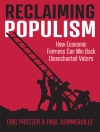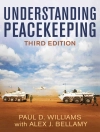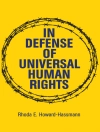This first study of faith-based development NGOs’ (FBOs) political roles focuses on how U.S. FBOs in international development educate and mobilize their constituencies. Most pursue cautious reformist agendas, but FBOs have sometimes played important roles in social movements. Nelson unpacks those political roles by examining the prominence of advocacy in the organizations, the issues they address and avoid, their transnational relationships, and their relationships with religious and secular social movements. The agencies that educate and mobilize U.S. constituencies most actively are associated with small Christian sects or with non-Christian minority faiths with historic commitments to activism or service. Specialized advocacy NGOs play important roles, and emerging movements on immigration and climate may represent fresh political energy. The book examines faith-based responses to the crises of climate change, COVID-19, and racial injustice, and argues that these will shape thefuture of religion as a moral and political force in America, and of NGOs in international development.
Tabella dei contenuti
1. Introduction.- 2. Religion, Development and Faith-based Organizations.- 3. Faith-based Identities.- 4. Encouraging Active Citizen Voices on International Policy? The Record of U.S. Faith-based NGOs.- 5. Agendas and Strategies: Prophetic Voices and Cautious Reformers.- 6. Global Religions and National Politics.- 7. Beyond Advocacy? Mobilizing Compassion.- 8. Religious Movements and FBOs: The Climate Threat and Covid-19.- Conclusions.
Circa l’autore
Paul J. Nelson is Associate Professor of International Development at the Graduate School of Public and International Affairs (GSPIA), University of Pittsburgh, USA. Before joining the university in 1998 he worked for several faith-related non-governmental organizations (NGOs). He has published research on the World Bank, transnational NGO advocacy, religion and development, human rights-based development, and the Sustainable Development Goals.












